Green Tea Catechin
How to submit an article:
- Registered users can submit any published journal article that has a unique DOI (Digital Object Identifier) name or link to Research Hub.
- For example, you can paste the full DOI link:
https://doi.org/10.1109/5.771073or just the DOI name:10.1109/5.771073into the field above and click submit. - The person who is first to submit a valid article to Research Hub will forever be credited for it, and every article submission earns you +6 Research Points.
Related Topics
Published research studies are articles that present the findings of original research that has undergone a peer-review process and has been made publicly available in scholarly journals, books or other media.

Green Tea Catechins Attenuate Neurodegenerative Diseases and Cognitive Deficits
2022 Nov 06 Molecules Afzal O, Dalhat MH, Altamimi ASA, Rasool R, Alzarea SI, Almalki WH, et al.
Review Article Green Tea Cognitive Function Multiple Sclerosis Parkinson's Disease Neuroprotective Alzheimer's Disease Neurodegenerative DiseasesGreen tea's catechins demonstrate therapeutic effects against neurodegenerative diseases via anti-inflammatory, antioxidant actions, and activating diverse brain cellular pathways.
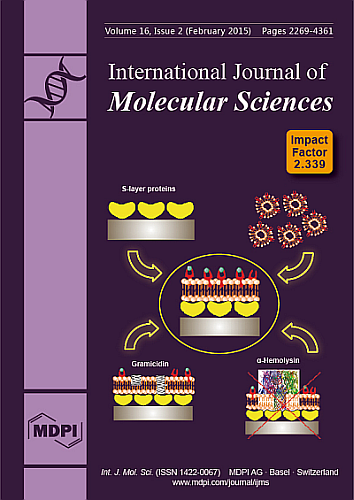
Green Tea Catechins: Nature’s Way of Preventing and Treating Cancer
2022 Sep 14 International Journal of Molecular Sciences Farhan M
Review Article EGCG Cancer Green Tea AnticancerCompounds found in green tea, especially EGCG, show significant anti-cancer activity and hold promise as potential anticancer drugs or adjuvants to standard chemotherapy.
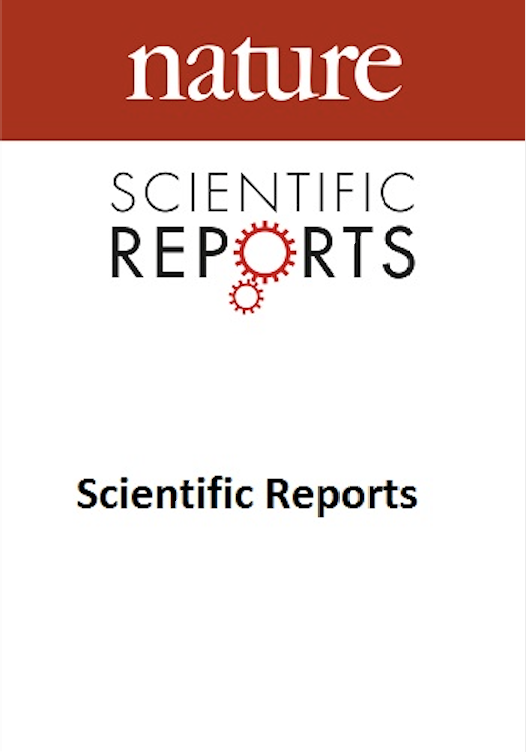
The combined effect of green tea and α-glucosyl hesperidin in preventing obesity: a randomized placebo-controlled clinical trial
2021 Sep 24 Scientific Reports Yoshitomi R, Yamamoto M, Kumazoe M, Fujimura Y, Yonekura M, Shimamoto Y, et al.
Clinical Study Randomised Controlled Trial EGCG Obesity Green TeaConsumption of green tea enriched with a citrus polyphenol, α-glucosyl hesperidin, can prevent weight gain and reduce body mass index, especially in individuals under 50 years.

Anti-Influenza with Green Tea Catechins: A Systematic Review and Meta-Analysis
2021 Jun 30 Molecules Rawangkan A, Kengkla K, Kanchanasurakit S, Duangjai A, Saokaew S
Systematic Review Meta-Analysis Green Tea InfluenzaGreen tea consumption has been found to be effective in preventing the contraction of influenza infections.

Beneficial Effects of Green Tea Catechins on Female Reproductive Disorders: A Review
2021 May 03 Molecules Kamal DAM, Salamt N, Zaid SSM, Mokhtar MH
Review Article PCOS Period Pain Female Reproductive Disorders Endometriosis Green TeaGreen tea and its chief bioactive component have the potential to improve certain female reproductive disorders such as endometriosis, polycystic ovary syndrome, and dysmenorrhea.
Research insights are moderated by the Research Hub team and offer an at-a-glance overview of interesting research findings.

2022 Molecules
Green tea's catechins demonstrate therapeutic effects against neurodegenerative diseases via anti-inflammatory, antioxidant actions, and activating diverse brain cellular pathways.
Review Article Alzheimer's Disease Cognitive Function Green Tea Multiple Sclerosis Neurodegenerative Diseases
Green Tea Catechins Attenuate Neurodegenerative Diseases and Cognitive Deficits
Afzal O, Dalhat MH, Altamimi ASA, Rasool R, Alzarea SI, Almalki WH, et al.

2022 International Journal of Molecular Sciences
Compounds found in green tea, especially EGCG, show significant anti-cancer activity and hold promise as potential anticancer drugs or adjuvants to standard chemotherapy.
Review Article Anticancer Cancer EGCG Green Tea
Green Tea Catechins: Nature’s Way of Preventing and Treating Cancer
Farhan M

2021 Scientific Reports
Consumption of green tea enriched with a citrus polyphenol, α-glucosyl hesperidin, can prevent weight gain and reduce body mass index, especially in individuals under 50 years.
Clinical Study EGCG Green Tea Obesity
The combined effect of green tea and α-glucosyl hesperidin in preventing obesity: a randomized placebo-controlled clinical trial
Yoshitomi R, Yamamoto M, Kumazoe M, Fujimura Y, Yonekura M, Shimamoto Y, et al.

2021 Molecules
Green tea consumption has been found to be effective in preventing the contraction of influenza infections.
Systematic Review Green Tea Influenza
Anti-Influenza with Green Tea Catechins: A Systematic Review and Meta-Analysis
Rawangkan A, Kengkla K, Kanchanasurakit S, Duangjai A, Saokaew S

2021 Molecules
Green tea and its chief bioactive component have the potential to improve certain female reproductive disorders such as endometriosis, polycystic ovary syndrome, and dysmenorrhea.
Review Article Endometriosis Female Reproductive Disorders Green Tea PCOS Period Pain
Beneficial Effects of Green Tea Catechins on Female Reproductive Disorders: A Review
Kamal DAM, Salamt N, Zaid SSM, Mokhtar MH
Review Articles
Review articles summarise and critically evaluate the current state of research on a specific topic or field by synthesising multiple primary research studies.

Green Tea Catechins Attenuate Neurodegenerative Diseases and Cognitive Deficits
2022 Nov 06 Molecules Afzal O, Dalhat MH, Altamimi ASA, Rasool R, Alzarea SI, Almalki WH, et al.
Review Article Green Tea Cognitive Function Multiple Sclerosis Parkinson's Disease Neuroprotective Alzheimer's Disease Neurodegenerative DiseasesGreen tea's catechins demonstrate therapeutic effects against neurodegenerative diseases via anti-inflammatory, antioxidant actions, and activating diverse brain cellular pathways.

Green Tea Catechins: Nature’s Way of Preventing and Treating Cancer
2022 Sep 14 International Journal of Molecular Sciences Farhan M
Review Article EGCG Cancer Green Tea AnticancerCompounds found in green tea, especially EGCG, show significant anti-cancer activity and hold promise as potential anticancer drugs or adjuvants to standard chemotherapy.

Anti-Influenza with Green Tea Catechins: A Systematic Review and Meta-Analysis
2021 Jun 30 Molecules Rawangkan A, Kengkla K, Kanchanasurakit S, Duangjai A, Saokaew S
Systematic Review Meta-Analysis Green Tea InfluenzaGreen tea consumption has been found to be effective in preventing the contraction of influenza infections.

Beneficial Effects of Green Tea Catechins on Female Reproductive Disorders: A Review
2021 May 03 Molecules Kamal DAM, Salamt N, Zaid SSM, Mokhtar MH
Review Article PCOS Period Pain Female Reproductive Disorders Endometriosis Green TeaGreen tea and its chief bioactive component have the potential to improve certain female reproductive disorders such as endometriosis, polycystic ovary syndrome, and dysmenorrhea.
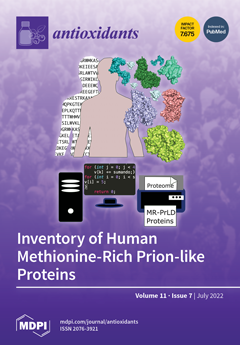
Osteoprotective Roles of Green Tea Catechins
2020 Nov 16 Antioxidants Huang HT, Cheng TL, Lin SY, Ho CJ, Chyu JY, Yang RS, et al.
Review Article Green Tea Catechin Osteoporosis Green Tea Bone FormationCatechins in green tea potentially counteract osteoporosis by negatively affecting bone loss processes and enhancing bone formation processes.
Clinical Trials
Clinical trials are research studies that involve people and are conducted to evaluate the safety and efficacy of new treatments or interventions, such as drugs, medical devices, or behavioural therapies.

The combined effect of green tea and α-glucosyl hesperidin in preventing obesity: a randomized placebo-controlled clinical trial
2021 Sep 24 Scientific Reports Yoshitomi R, Yamamoto M, Kumazoe M, Fujimura Y, Yonekura M, Shimamoto Y, et al.
Clinical Study Randomised Controlled Trial EGCG Obesity Green TeaConsumption of green tea enriched with a citrus polyphenol, α-glucosyl hesperidin, can prevent weight gain and reduce body mass index, especially in individuals under 50 years.

Effect of Daily Intake of Green Tea Catechins on Cognitive Function in Middle-Aged and Older Subjects: A Randomized, Placebo-Controlled Study
2020 Sep 17 Molecules Baba Y, Inagaki S, Nakagawa S, Kaneko T, Kobayashi M, Takihara T
Randomised Controlled Trial Green Tea Catechin Green Tea Cognitive Function MemoryDaily consumption of decaffeinated green tea catechins may enhance working memory.
Study Protocols
Published study protocols are detailed plans that outline the objectives, methodology, statistical analyses, and organisation of a research study that have been made publicly available for others to review and use as a reference.
Presentation Slides

Review Article
Green tea's catechins demonstrate therapeutic effects against neurodegenerative diseases via anti-inflammatory, antioxidant actions, and activating diverse brain cellular pathways.
Afzal O, Dalhat MH, Altamimi ASA, Rasool R, Alzarea SI, Almalki WH, Murtaza BN, Iftikhar S, Nadeem S, Nadeem MS, Kazmi I

Review Article
Compounds found in green tea, especially EGCG, show significant anti-cancer activity and hold promise as potential anticancer drugs or adjuvants to standard chemotherapy.
Farhan M

Clinical Study
Consumption of green tea enriched with a citrus polyphenol, α-glucosyl hesperidin, can prevent weight gain and reduce body mass index, especially in individuals under 50 years.
Yoshitomi R, Yamamoto M, Kumazoe M, Fujimura Y, Yonekura M, Shimamoto Y, Nakasone A, Kondo S, Hattori H, Haseda A, Nishihira J, Tachibana H

Systematic Review
Green tea consumption has been found to be effective in preventing the contraction of influenza infections.
Rawangkan A, Kengkla K, Kanchanasurakit S, Duangjai A, Saokaew S

Review Article
Green tea and its chief bioactive component have the potential to improve certain female reproductive disorders such as endometriosis, polycystic ovary syndrome, and dysmenorrhea.
Kamal DAM, Salamt N, Zaid SSM, Mokhtar MH
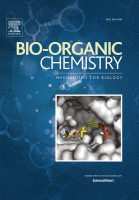
Experimental Study
Green tea polyphenolic compounds, (-)-epigallocatechin (EGC) and (-)-epicatechin-3-gallate (ECG), can diminish harmful Alzheimer's disease linked Aβ aggregates and ameliorate symptoms.
Chen T, Yang Y, Zhu S, Lu Y, Zhu L, Wang Y, Wang X

Review Article
Catechins in green tea potentially counteract osteoporosis by negatively affecting bone loss processes and enhancing bone formation processes.
Huang HT, Cheng TL, Lin SY, Ho CJ, Chyu JY, Yang RS, Chen CH, Shen CL
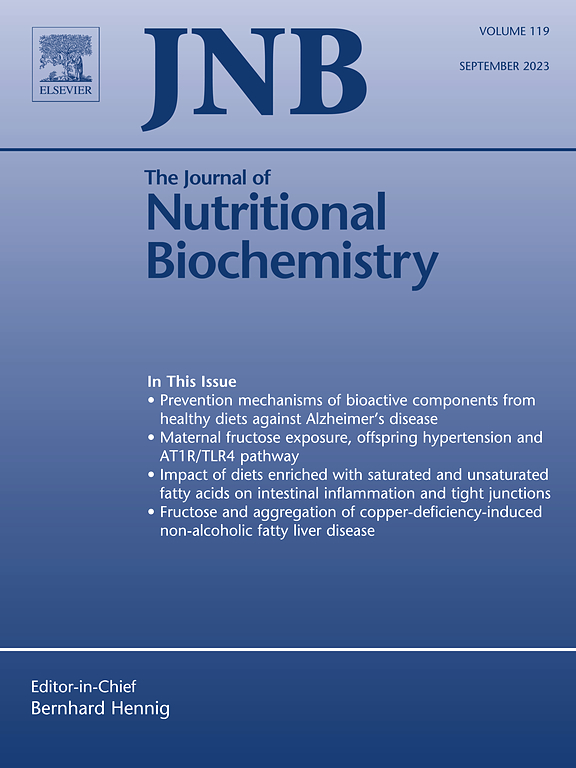
Review Article
Catechin-rich green tea extract (GTE) exercised anti-inflammatory activities can be beneficial in managing Nonalcoholic fatty liver disease (NAFLD) by reducing liver injury and gut-derived endotoxins.
Hodges JK, Sasaki GY, Bruno RS

Review Article
Green tea catechins potentially contribute to maintaining joint and skeletal muscle health, mitigating symptoms of osteoarthritis and sarcopenia.
Luk HY, Appell C, Chyu MC, Chen CH, Wang CY, Yang RS, Shen CL

Randomised Controlled Trial
Daily consumption of decaffeinated green tea catechins may enhance working memory.
Baba Y, Inagaki S, Nakagawa S, Kaneko T, Kobayashi M, Takihara T
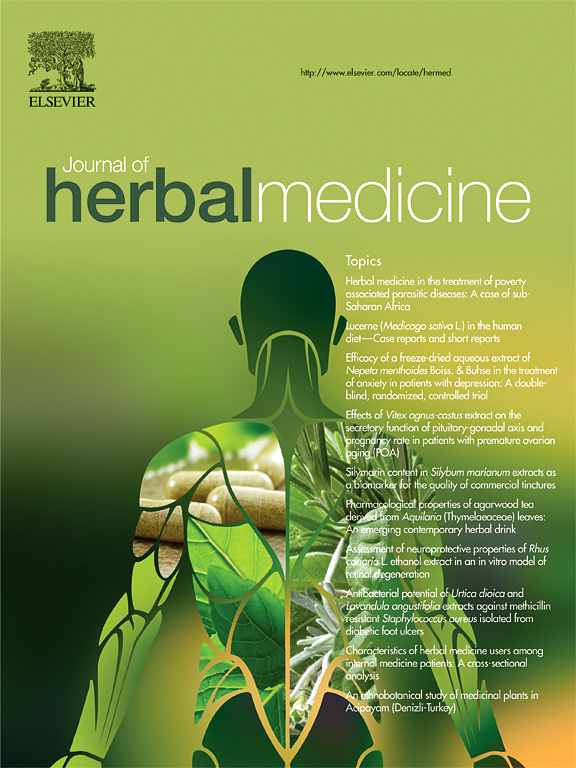
Systematic Review
Green tea catechins-containing mouthwash may potentially be a practical alternative to chlorhexidine due to its efficacy in plaque reduction and minimal side effects.
Gartenmann SJ, Steppacher SL, von Weydlich Y, Heumann C, Attin T, Schmidlin PR

Systematic Review
Green tea influences liver enzymes differently based on an individual's health status, reducing levels in patients with Nonalcoholic Fatty Liver Disease, but slightly increasing levels in healthy subjects.
Mahmoodi M, Hosseini R, Kazemi A, Ofori‐Asenso R, Mazidi M, Mazloomi SM
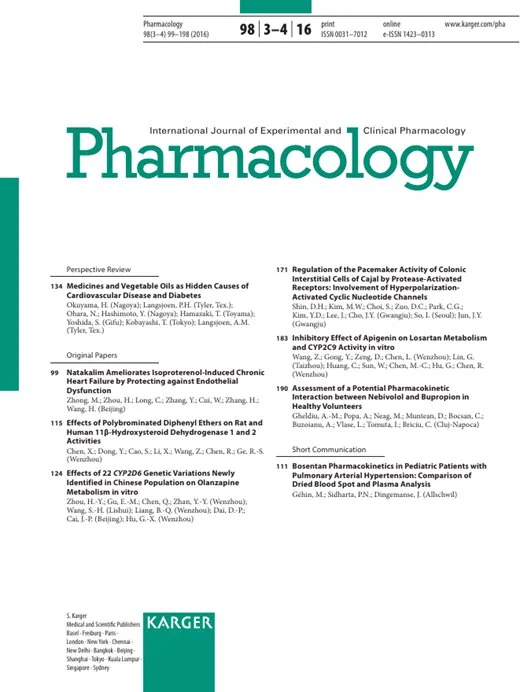
Systematic Review
Green tea polyphenols may enhance effectiveness of specific breast cancer endocrine treatments through both estrogen-dependent and -independent mechanisms.
Yiannakopoulou EC

Systematic Review
The consumption of green tea catechins is associated with a statistically significant reduction in total and LDL cholesterol levels.
Kim A, Chiu A, Barone MK, Avino D, Wang F, Coleman CI, Phung OJ
Executive Summary
Write an executive summary in the form of a blog article on the topic of "Research into Chinese medicine treatment for Green Tea Catechin" summarising the research below and using language that can be easily understood by patients and avoiding medical jargon using a professional and caring tone of voice.
Write an executive summary in the form of a blog article on the topic of "Researched Chinese medicine treatments for Green Tea Catechin" summarising the research below in an objective and easy to understand way, and using language that can be easily understood by patients. Group the article into Chinese medicine treatments first, followed by nutrition and other treatments. Avoid using medical jargon and use a professional and caring tone of voice.
Write me a concise but easy to understand executive summary on the topic of "Chinese medicine treatments for Green Tea Catechin" based on the following research that I will give you. Your summary should be 2 paragraphs long in Australian English spelling and include references to the studies.
A Review Article published in 2022 in the journal Molecules found that Green tea's catechins demonstrate therapeutic effects against neurodegenerative diseases via anti-inflammatory, antioxidant actions, and activating diverse brain cellular pathways. The research primarily evaluates the effect of polyphenolic compounds found in green tea, known as catechins, on neurodegenerative diseases. By conducting several interventional and observational studies on humans, the research explores the anti-cancer, anti-obesity, antidiabetic, anti-inflammatory, and neuroprotective properties of these compounds. The biological, pharmacological, antioxidant, and metal chelating abilities of catechins, particularly their influence on different cellular pathways within the brain, are intensively studied. The results elucidate that catechins exhibit multiple neuroprotective effects. Their anti-inflammatory and antioxidant properties help to inhibit excessive production of cytokines, and inflammatory pathways, while also controlling metal ions and free radicals. Researchers have further established that catechins may curb the phosphorylation of the tau protein and aggregation of amyloid beta, both key markers in neurodegenerative diseases. Additionally, these compounds show potential in reducing alpha-synuclein levels and augmenting dopamine levels. Hence, they significantly contribute to the prevention and treatment of neurodegenerative diseases, including Alzheimer's, Parkinson's, multiple sclerosis, and cognitive deficits.
A Review Article published in 2022 in the journal International Journal of Molecular Sciences found that Compounds found in green tea, especially EGCG, show significant anti-cancer activity and hold promise as potential anticancer drugs or adjuvants to standard chemotherapy. The study used a combination of epidemiological and laboratory studies to examine the effects of catechins in green tea on combating cancer. The researchers focused their attention on the four main catechin derivatives found in green tea: epicatechin, epigallocatechin, epicatechin gallate, and epigallocatechin gallate—the latter found to be most potent. Attention was given to the quantity of hydroxyl groups and the presence of certain structural groups in these compounds, and how these factors affected antioxidant activity. The study centered around the effects of catechins on tumor survival, proliferation, invasion, angiogenesis, and metastasis. By doing this, the researchers could observe the influence of the identified compounds on the various processes that lead to the development and spread of cancer. The main point of observation was the capacity of catechins to neutralize reactive oxygen species, a key facet in their anti-cancer activity.
A Clinical Study published in 2021 in the journal Scientific Reports found that Consumption of green tea enriched with a citrus polyphenol, α-glucosyl hesperidin, can prevent weight gain and reduce body mass index, especially in individuals under 50 years. The research involved a randomized, placebo-controlled, double-blinded, and parallel-group-designed clinical trial. Sixty healthy Japanese men and women aged between 30 and 75 were included in the study. They were instructed to consume a blend of green tea and α-glucosyl hesperidin (GT-gH). Each dosage contained 178 mg α-glucosyl hesperidin and 146 mg of an active ingredient of green tea, called EGCG. This protocol was followed for 12 weeks. Participants underwent physical, hematological, blood biochemical, and urine examinations to ensure safety. Discussion of findings showed that the GT-gH mixture played a significant role in weight management. By the end of 12 weeks, participants who consumed the GT-gH mix showed prevention in weight gain and a reduction in body mass index when compared to the control group. The anti-obesity effect was particularly observable in individuals aged below 50. These participants experienced lower levels of triglyceride, body fat percentage, and visceral fat levels, alongside a decrease in body weight, BMI, and blood LDL/HDL ratios.
A Systematic Review published in 2021 in the journal Molecules found that Green tea consumption has been found to be effective in preventing the contraction of influenza infections. To identify the potential benefits of green tea in influenza prevention, a methodical review and combined analysis of eight distinct research studies involving 5,048 participants was completed. The effect of green tea catechin treatment was tested against control conditions and assessed based on infection rates. Five of these studies were randomized controlled trials involving 884 participants and three were cohort studies with 2,223 participants. Subgroups such as those who gargled or took orally ingested forms of green tea were also analyzed separately. Further to this, the possibility of publication biases was evaluated using Begg's and Egger's tests. The results showed both the randomized trials and the cohort studies displayed significant preventative effects on influenza infection for those treated with green tea catechins. Notably, there was no evidence of non-uniformity within the data, reinforcing these findings. The pooled results of different consumption methods further supported these findings, showing no disparities among the subgroups. These results suggest the consumption of green tea has tangible prophylactic effects against influenza infection.
A Review Article published in 2021 in the journal Molecules found that Green tea and its chief bioactive component have the potential to improve certain female reproductive disorders such as endometriosis, polycystic ovary syndrome, and dysmenorrhea. The study reviews the beneficial effects of green tea and its major bioactive component on female reproductive disorders, focusing on endometriosis, polycystic ovary syndrome (PCOS), and dysmenorrhea. The research highlights the role of catechins, phenolic compounds found in tea, which have been known for their health benefits due to their high antioxidative properties. The green tea or its derivative works on endometriosis through anti-angiogenic, anti-fibrotic, anti-proliferative, and proapoptotic mechanisms. In the discussion of results, it was found that green tea not only enhances ovulation and reduces cyst formation in PCOS, but it also ameliorates generalised hyperalgesia, reduces plasma corticosterone levels, and mitigates uterine contractility in dysmenorrhea. Despite the promising findings, the study acknowledges the need for more comprehensive clinical trials to fully translate these findings into clinical practice.
A Experimental Study published in 2020 in the journal Bioorganic Chemistry found that Green tea polyphenolic compounds, (-)-epigallocatechin (EGC) and (-)-epicatechin-3-gallate (ECG), can diminish harmful Alzheimer's disease linked Aβ aggregates and ameliorate symptoms. Green tea compounds EGC and ECG were tested for their effects on Cu/Zn-induced or self-assembled Aβ aggregation involved in Alzheimer's disease. To do so, a combination of thioflavine T fluorescent spectrometry, inductively coupled plasma mass spectrometry, UV-Vis spectroscopy, transmission electron microscopy, silver staining, immunohistochemistry, and immunofluorescence assays were utilized. Findings indicate that these compounds bind mildly to Cu and Zn and reduce their caused or self-assembled Aβ aggregates. Moreover, these compounds were shown to manage neurotoxicity in mouse neuroblastoma Neuro-2a cells by decreasing the production of reactive oxygen species (ROS). From the findings, the EGC and ECG in green tea showed potential in reducing the toxicity of Aβ oligomers and fibrils which are heavily linked to Alzheimer's disease. Notably, ECG has the ability to traverse the blood-brain barrier and reduce Aβ plaques within the mouse brain, showcasing its potential for neuron protection. This study highlights the potential of green tea - specifically, its polyphenolic compounds - in the prevention or reduction of Alzheimer's disease symptoms.
A Review Article published in 2020 in the journal Antioxidants found that Catechins in green tea potentially counteract osteoporosis by negatively affecting bone loss processes and enhancing bone formation processes. The research paper explores the role of catechins, a key compound found in green tea, in combating osteoporosis. In an endeavour to understand the cellular processes, the research focuses on the two critical processes involved in the onset of osteoporosis: osteoblastogenesis, the process of bone formation, and osteoclastogenesis, the process of bone resorption. Specifically, the research emphasizes that inflammation and high reactive oxygen levels enhance osteoclastogenesis while concurrently reducing osteoblastogenesis. Green tea catechins, which have strong antioxidant and anti-inflammatory properties, are assumed to rebalance these two processes. The discussions revolve around the potential of green tea catechins to curb osteoclastogenesis by increasing the rate of osteoclast apoptosis, hampering osteoclastogenesis, and impeding bone resorption in a controlled environment. This is achieved directly through interactions with pre-osteoclasts/osteoclasts or indirectly through regulation of pre-osteoclasts via mesenchymal stem cells (MSCs) or stromal cells. Furthermore, catechins are credited with boosting osteoblastogenesis by enhancing the osteogenic differentiation of MSCs and improving osteoblastic survival, proliferation, differentiation, and mineralization. The paper verifies the positive in-vitro effects of catechins on osteogenesis through various animal models and human observational studies.
A Review Article published in 2020 in the journal The Journal of Nutritional Biochemistry found that Catechin-rich green tea extract (GTE) exercised anti-inflammatory activities can be beneficial in managing Nonalcoholic fatty liver disease (NAFLD) by reducing liver injury and gut-derived endotoxins. The research is built around the study of the anti-inflammatory properties of catechin-rich green tea extract (GTE). The primary analytical interest is its effects on inflammatory responses that contribute to Nonalcoholic fatty liver disease (NAFLD), specifically nonalcoholic steatohepatitis (NASH). The extraction focuses on inhibiting the activation of the hepatic nuclear factor kappa-B, which is known to exacerbate liver injury. The results have shown positive contributions of GTE to management of NAFLD. Itn was observed that the extract limits the activation of the hepatic nuclear factor kappa-B and in turn, reduces NASH-associated liver injury. Additionally, green tea extract was found to contain hepatic-level benefits that attenuate intracellular redox distress and pro-inflammatory signaling. It was also found to improve the gut barrier function, limit the translocation of gut-derived endotoxins, and exercise prebiotic and antimicrobial effects on the gut microbial ecosystem. These results can potentially contribute to managing NAFLD-associated morbidity.
A Review Article published in 2020 in the journal Antioxidants found that Green tea catechins potentially contribute to maintaining joint and skeletal muscle health, mitigating symptoms of osteoarthritis and sarcopenia. The research begins by providing an understanding of osteoarthritis, a degenerative inflammatory disorder of articular cartilage, and sarcopenia, a condition characterized by loss of muscle mass and strength. It explores their prevalence, causes such as excessive inflammation and oxidative stress, mitochondrial dysfunction, and diminished autophagy. It then delves into the role of green tea catechins in joint health, including their influence on inflammatory signaling agents, anabolic mediators, and miRNAs expression. This leads to a decrease in chondrocyte death and collagen degradation, thereby offering cartilage protection. The investigation also examines the effects of green tea catechins on skeletal muscle health. It highlights their role in maintaining an equilibrium between protein synthesis and degradation, and enhancing the synthesis of mitochondrial energy metabolism. The review thus suggests a positive impact of green tea catechins on joint and muscle health, helping to maintain favorable muscle homeostasis and reduce muscle atrophy associated with aging. It ends by pointing out the limitations of the current study and proposing future research directions.
A Randomised Controlled Trial published in 2020 in the journal Molecules found that Daily consumption of decaffeinated green tea catechins may enhance working memory. The study incorporated a double-blind, randomized, controlled approach to determine the effects of 336.4 mg of decaffeinated green tea catechins on cognitive function. It targeted Japanese adults, aged 50 to 69 years, exhibiting a Mini-Mental State Examination Japanese version score of over 24 and who self-identified as having cognitive decline. The experiment comprised administering a substance and then examining the cognitive function post a single dosage as well as following 12 weeks of everyday consumption. The Cognitrax testing battery was utilized to assess cognitive function. In the results, it was observed that the incorrect response rate on the Continuous Performance Test significantly fell after a single dosage of green tea catechins. After 12 weeks of regular intake, the response duration for the two-back test in Part 4 of the 4-part Continuous Performance Test reduced, indicating potential improvement in working memory. The data suggests that consuming green tea catechins daily may potentially lead to cognitive enhancements, particularly in working memory.
A Systematic Review published in 2020 in the journal Journal of Herbal Medicine found that Green tea catechins-containing mouthwash may potentially be a practical alternative to chlorhexidine due to its efficacy in plaque reduction and minimal side effects. The methodology involved an exhaustive literature review of several electronic databases, such as CINAHL, Cochrane Library, MEDLINE, PubMed and Scopus, up until January 2017. This review adhered to the PRISMA criteria, centring the research question around the impact of green tea catechins-containing mouthwash on plaque accumulation and gingival inflammation in patients with gingivitis. Out of the 187 titles identified this way, five were fit for meta-analysis, the subject matter primarily revolving around an Asian population. The results indicated that both green tea and chlorhexidine (CHX) significantly outperformed a placebo in reducing Plaque Index (PI), with no substantial contrast between the CHX and green tea groups, both in terms of the endpoint and the change from the beginning of the study to its conclusion. However, only minor side effects were associated with the green tea mouthwash. Contrarily to chlorhexidine, this aspect might make green tea mouthwash more suitable for prolonged use. Despite some heterogeneity in the data and potential bias risks, green tea mouthwash remains an interesting, viable alternative worth considering.
A Systematic Review published in 2020 in the journal Phytotherapy Research found that Green tea influences liver enzymes differently based on an individual's health status, reducing levels in patients with Nonalcoholic Fatty Liver Disease, but slightly increasing levels in healthy subjects. The researchers initiated a comprehensive review and analysis of randomized clinical trials relating to green tea supplementation's effects on liver enzymes. This analysis included forms of green tea supplementation, such as catechin. The information to support this examination was sourced from four medical and health databases and included all trials examining the influence of green tea or its derivatives on specific liver enzymes, including Alanine Transaminase, Aspartate Aminotransferase, Alkaline Phosphatase, and Bilirubin. Altogether, fifteen trials were considered for inclusion in this research. The study found that while the overall effect of green tea on liver enzymes was nonsignificant, further analysis showed that the impact of green tea on liver enzymes varies depending on an individual's health status. Notably, the use of green tea reduced liver enzyme levels in participants diagnosed with Nonalcoholic Fatty Liver Disease. However, in contrast, a small but statistically significant increase in liver enzyme levels was observed in healthy subjects. These findings suggest that the therapeutic potential of green tea may differ significantly based on an individual's health condition.
A Systematic Review published in 2014 in the journal Pharmacology found that Green tea polyphenols may enhance effectiveness of specific breast cancer endocrine treatments through both estrogen-dependent and -independent mechanisms. The methodology used in this systematic review involved a comprehensive search for relevant studies across various electronic databases. The search terms used were tailored to uncover data specifically regarding the interaction of green tea catechins with breast cancer endocrine treatment. Importantly, this review was focused on experimental trials which studied the synergistic effects of green tea catechins and certain breast cancer treatments, namely tamoxifen and raloxifene. The analysis of results indicated that green tea catechins potentially work in conjunction with tamoxifen or raloxifene—used for treating both estrogen receptor-positive and receptor-negative breast cancer—via mechanisms that may depend or not depend on the estrogen receptor. At the same time, the review found no existing evidence showing any interaction of green tea catechins with aromatase inhibitors or fulvestrant. Notably, given their nature as natural compounds and their known safety profile, green tea catechins used along with tamoxifen could constitute a viable direction for enhancing chemoprevention, adjuvant, and metastatic breast cancer treatments.
A Systematic Review published in 2011 in the journal Journal of the Academy of Nutrition and Dietetics found that The consumption of green tea catechins is associated with a statistically significant reduction in total and LDL cholesterol levels. Twenty trials (N=1,415) met all inclusion criteria. Upon meta-analysis, GTCs at doses ranging from 145 to 3,000 mg/day taken for 3 to 24 weeks reduced total and LDL cholesterol compared to control. GTCs did not significantly alter HDL cholesterol or triglyceride levels. The consumption of GTCs is associated with a statistically significant reduction in total and LDL cholesterol levels; however, there was no significant effect on HDL cholesterol or triglyceride levels.
Moderation Tools
Topic
Sign In
Users not signed in are limited to viewing the 5 most recent items of content.